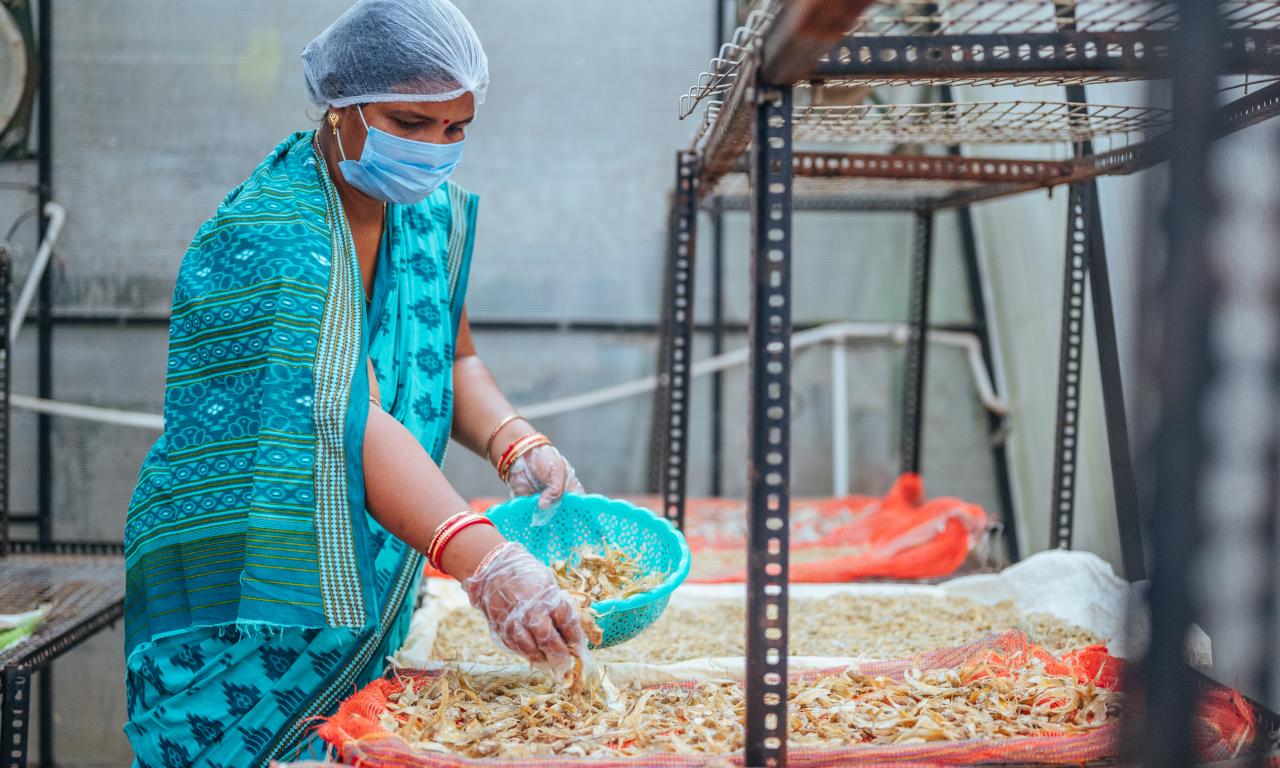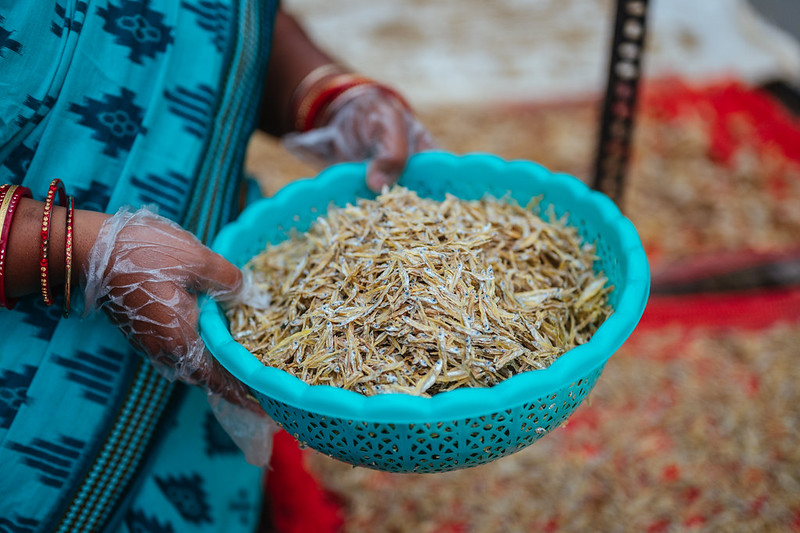
Premalata Behera, a 40-year-old member of Maa Women Self Help Group and resident of the Dalimbapur fishing village, comes from a long line of coastal fishers in Odisha, India.
For generations, her community has relied on the dried fish trade as a vital source of income. However, Premalata and her group members faced persistent challenges running their dried fish business.
“When I dried fish in the open under sunlight, birds, insects, and dust spoiled it quickly, and I earned very little money,” said Premalata .
Using the traditional open-air sun drying method, Premalata struggled with poor quality, limited demand, low profit margins, and a lack of knowledge on hygienic processing techniques. This resulted in inconsistent product quality, limited market reach, and ultimately, less money coming in from her small business, challenges that affected her other WSHG members.
Premalata relied on these outdated practices because she lacked access to modern processing techniques. Additionally, inconsistency in pricing further hindered her ability to compete in the open market. Despite her best efforts, her business had remained confined to local markets, with limited access to larger consumer bases, leading to frequent losses due to the short shelf life of her products.
A Solar Solution
The turning point in Premalata’s business came when the WorldFish, in collaboration with ICAR-CIFT, Directorate of Fisheries and Mission Shakti department under the USAID initiative, introduced an energy-efficient and low-cost solar tunnel fish dryer, which provided a controlled environment for drying fish, significantly improving the quality and consistency of her dried products.
“With the solar tunnel dryer from WorldFish and the training I received, my fish now dries faster and stays clean. It lasts for many more days, the colour looks better, attracts everyone, and I get a higher price in the market. Now I can earn more, and my family is much happier," said Premalata.

This shift to solar drying, combined with guidance on pricing strategies, resulted in higher profit margins for Premalata. With the enhanced quality of her products, the price of dried fish particularly, anchovy, sardines, pomfret, mackerel, increased by 20 to 25 percent per kilogram compared to the usual price.
“My dried fish is now in higher demand with a better selling price. Wholesalers get in touch with me directly to place orders. In the past, this was unthinkable,” said Binapani Samal, another member of the SHG.
Building on Success
With support from WorldFish, Premalata and her community have improved their income and are now prospering in a competitive market. This enables them to contribute to the sustainability and economic growth of their community.
WorldFish also conducted practical demonstrations and training sessions, equipping Premalata, and her fellow SHG members, with knowledge on contemporary processing methods, such as proper washing, efficient drying, packaging, labelling, and determining appropriate prices for their product. Through this training, Premalata was able to enhance the market appeal of her products, enabling her to secure premium pricing.
With the adoption of solar drying, the quality of Premalata’s dried fish products significantly improved. This ensured complete drying at the right moisture level, improving taste, texture, and consumer satisfaction.
The solar drying process also extended the shelf life of her products to over six months, which significantly reduced losses and enabled better stock management.
